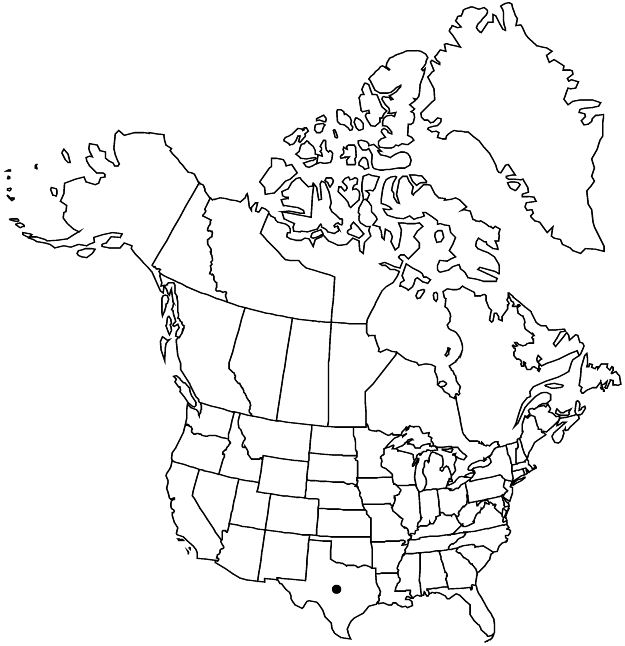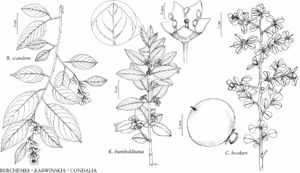Difference between revisions of "Condalia hookeri"
Brittonia 14: 362. 1962.
FNA>Volume Importer |
FNA>Volume Importer |
(No difference)
| |
Revision as of 18:17, 24 September 2019
Shrubs or small trees, (1–)2–3.5(–6) m; primary branches not thorn-tipped, secondary branches thorn-tipped, with short shoots and few thorn-tipped tertiary branches, glabrous or densely hispidulous; internodes 2–5(–11) mm. Leaves: petiole 3–10 mm; blade obovate to elliptic, (10–)15–20(–31) × (5–)9–12(–19) mm, herbaceous, margins entire or distally few-toothed, not revolute, apex on a single plant consistently rounded to truncate-emarginate, surfaces glabrous or occasionally hispidulous; venation flush and inconspicuous abaxially. Inflorescences on short shoots, 1–3-flowered. Pedicels 0.8 mm. Flowers: petals 0. Drupes globose, 5–6 mm; stones 1–2-seeded.
Phenology: Flowering (Mar–)Apr–Jul(–Oct).
Habitat: Limestone slopes, sandstone bluffs, sandy clay, clay dunes, shell ridges, thorn scrub, juniper woodlands, riparian woods.
Elevation: 10–400 m.
Distribution

Tex., Mexico (Nuevo León, Tamaulipas).
Discussion
Condalia hookeri var. edwardsiana was noted by M. C. Johnston (1962) to be known only from a single thicket at the type locality in Edwards County, Texas; it was described as differing from the typical variety in its leaf blades being 2.5–3 times longer than wide (versus 1–2.5 times longer than wide). This morph has never been relocated despite repeated searching and appears to represent a populational variant. In the flora area, C. hookeri is widespread in central and southern Texas.
Selected References
None.
